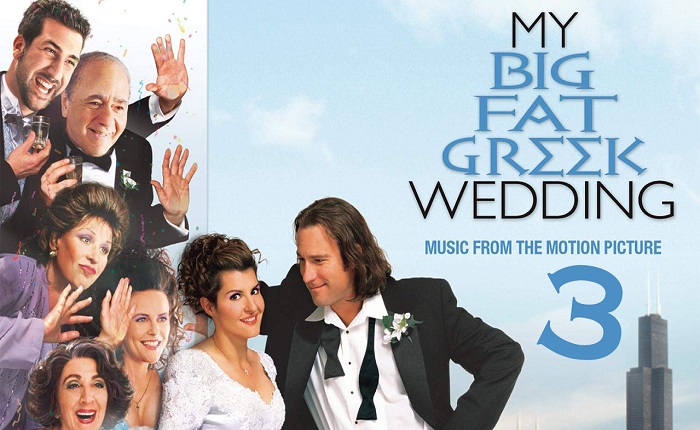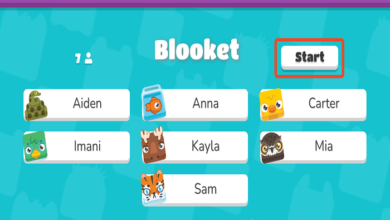My Big Fat Greek Wedding: A Cultural Comedy Classic and Its Enduring Legacy

Introduction
Released in 2002, My Big Fat Greek Wedding took the world by storm with its humorous yet heartwarming portrayal of Greek-American culture and the complexities of marrying outside one’s traditional cultural background. The movie quickly became a cultural phenomenon, earning critical acclaim and achieving massive commercial success. My Big Fat Greek Wedding captivated audiences with its relatable themes of family, love, and identity, making it an enduring favorite.
The film centers on Toula Portokalos, a 30-year-old Greek-American woman who falls in love with a non-Greek man, Ian Miller. Her family’s strong cultural traditions and expectations create a series of humorous yet touching moments as Toula navigates her relationship, cultural identity, and her family’s larger-than-life presence. The story of My Big Fat Greek Wedding continues to resonate with audiences for its portrayal of cross-cultural relationships and the importance of family.
The Origins of My Big Fat Greek Wedding
The inspiration for My Big Fat Greek Wedding came from the life of its writer and star, Nia Vardalos, whose own experiences growing up in a large Greek family and marrying a non-Greek man formed the backbone of the film’s story. Nia Vardalos originally developed My Big Fat Greek Wedding as a one-woman stage show in Los Angeles, where it caught the attention of Hollywood producers. This eventually led to the film adaptation of My Big Fat Greek Wedding, which became a sleeper hit.
The authenticity and personal nature of the film were crucial elements in its success. Vardalos infused My Big Fat Greek Wedding with humorous observations about Greek culture, family dynamics, and the challenges of blending different cultural backgrounds. These themes helped make My Big Fat Greek Wedding relatable to audiences around the world, regardless of their own cultural heritage.
The Cast of My Big Fat Greek Wedding
One of the reasons My Big Fat Greek Wedding was so successful is its memorable cast of characters, led by Nia Vardalos as Toula Portokalos. Vardalos’ portrayal of Toula, a shy and somewhat insecure woman who grows into her own confidence, is both endearing and relatable.
John Corbett, who plays Ian Miller, brings charm and sincerity to the role of Toula’s non-Greek love interest. His chemistry with Vardalos is a driving force in My Big Fat Greek Wedding, making their relationship feel genuine and heartfelt.
Michael Constantine, who portrays Gus Portokalos, Toula’s father, is one of the standout performances in My Big Fat Greek Wedding. Gus’ unwavering love for Greek culture and his hilarious antics—such as his belief in the healing powers of Windex—add an extra layer of humor to My Big Fat Greek Wedding.
Lainie Kazan, Andrea Martin, and the rest of the supporting cast of My Big Fat Greek Wedding deliver equally memorable performances that contribute to the film’s rich and colorful portrayal of family life.
The Plot of My Big Fat Greek Wedding
The plot of My Big Fat Greek Wedding follows Toula Portokalos as she embarks on a journey of self-discovery, love, and cultural acceptance. At the start of My Big Fat Greek Wedding, Toula is stuck in a monotonous routine, working at her family’s restaurant and feeling unsatisfied with her life. Everything changes when she meets Ian Miller, a charming, non-Greek man who ignites a spark of excitement in her life.
As their relationship deepens, the couple faces the challenge of gaining acceptance from Toula’s traditional Greek family, who have always expected her to marry a fellow Greek. This cultural clash leads to a series of humorous yet heartfelt moments in My Big Fat Greek Wedding, as both Toula and Ian navigate the complexities of blending their different worlds.
Cultural Themes in My Big Fat Greek Wedding
At the heart of My Big Fat Greek Wedding is the exploration of cultural identity and the importance of family. The film humorously portrays the experience of growing up in a tight-knit ethnic community, where family traditions and expectations are deeply ingrained. For Toula, balancing her Greek heritage with her desire for independence is a central theme in My Big Fat Greek Wedding.
The cultural clash between Toula’s Greek family and Ian’s more laid-back American background provides much of the film’s comedic moments. However, My Big Fat Greek Wedding also highlights the importance of understanding and embracing cultural differences, showing that love and family can transcend those divides.
Family Dynamics in My Big Fat Greek Wedding
The Portokalos family is a central focus of My Big Fat Greek Wedding, providing both the film’s humor and emotional depth. Toula’s family, with its larger-than-life characters and strong cultural ties, is portrayed with warmth and affection. Despite their overbearing tendencies, the family’s love for Toula is evident throughout My Big Fat Greek Wedding.
Gus Portokalos, in particular, embodies the role of the traditional patriarch, insisting on the importance of Greek customs and values. However, as My Big Fat Greek Wedding progresses, it becomes clear that Gus’ love for his daughter outweighs his initial reservations about her relationship with Ian. The film ultimately shows that family, while sometimes complicated, is a source of support and unconditional love.
The Humor of My Big Fat Greek Wedding
One of the defining features of My Big Fat Greek Wedding is its humor, which is rooted in both cultural stereotypes and universal experiences. The film pokes fun at the exaggerated aspects of Greek culture, such as the Portokalos family’s obsession with food, their strong opinions on marriage, and Gus’ belief in Greek superiority.
However, the humor in My Big Fat Greek Wedding is never mean-spirited. Instead, it celebrates the quirks and idiosyncrasies of family life in a way that resonates with audiences from all backgrounds. The comedic elements of My Big Fat Greek Wedding are balanced with moments of genuine emotion, making the film a delightful and heartwarming experience.
The Role of Food in My Big Fat Greek Wedding
Food plays a significant role in My Big Fat Greek Wedding, serving as a symbol of Greek culture and hospitality. From the family-owned restaurant, “Dancing Zorba’s,” to the elaborate preparations for the wedding feast, food is a central aspect of the Portokalos family’s life.
In My Big Fat Greek Wedding, food is not just sustenance but a way to express love, tradition, and community. The film’s iconic line, “What do you mean, he don’t eat no meat?” humorously highlights the cultural importance of food, as the Portokalos family grapples with Ian’s vegetarianism.
The Wedding in My Big Fat Greek Wedding
The titular wedding in My Big Fat Greek Wedding is the culmination of the film’s themes of cultural blending and family acceptance. As Toula and Ian prepare for their big day, they must navigate the various cultural expectations and traditions that come with a Greek wedding.
The wedding planning process in My Big Fat Greek Wedding provides many of the film’s comedic moments, from the clash over traditions to the over-the-top decorations. However, the wedding also serves as a symbol of unity, as both families come together to celebrate Toula and Ian’s love.
The Impact of My Big Fat Greek Wedding on Pop Culture
My Big Fat Greek Wedding had a profound impact on pop culture, particularly in the way it portrayed ethnic communities and cross-cultural relationships. The film’s success opened the door for more diverse storytelling in Hollywood, proving that stories rooted in specific cultural experiences could resonate with a wide audience.
The phrase “My Big Fat Greek Wedding” has since become synonymous with over-the-top family celebrations, and the film’s humor and heart have made it a staple of romantic comedy. My Big Fat Greek Wedding continues to be referenced in popular culture, demonstrating its lasting influence.
Box Office Success of My Big Fat Greek Wedding
One of the most remarkable aspects of My Big Fat Greek Wedding is its box office success. Made on a modest budget of $5 million, the film grossed over $368 million worldwide, making it one of the highest-grossing romantic comedies of all time. My Big Fat Greek Wedding became a sleeper hit, largely through word of mouth and its widespread appeal.
The success of My Big Fat Greek Wedding was unexpected, especially given its relatively small marketing budget. However, its universal themes and relatable characters helped it connect with audiences around the globe, proving that a personal, culturally specific story could achieve international success.
Critical Reception of My Big Fat Greek Wedding
My Big Fat Greek Wedding received largely positive reviews from critics, who praised its humor, heart, and performances. The film’s exploration of cultural identity and family dynamics struck a chord with audiences and critics alike. Nia Vardalos’ script and performance were particularly lauded, earning her an Academy Award nomination for Best Original Screenplay.
While some critics noted that My Big Fat Greek Wedding relied on familiar romantic comedy tropes, the film’s unique cultural perspective and authentic voice set it apart from other films in the genre. Its ability to blend comedy with genuine emotion contributed to its critical success.
The Sequel: My Big Fat Greek Wedding 2
In 2016, the long-awaited sequel to My Big Fat Greek Wedding was released, reuniting much of the original cast. My Big Fat Greek Wedding 2 follows Toula and Ian as they navigate the challenges of raising a teenage daughter while dealing with another big, fat Greek wedding.
While My Big Fat Greek Wedding 2 did not achieve the same level of box office success or critical acclaim as the original, it was still a nostalgic and enjoyable continuation of the Portokalos family’s story. The sequel expanded on the themes of family, tradition, and love that made the first film so beloved.
The Legacy of My Big Fat Greek Wedding
The legacy of My Big Fat Greek Wedding extends far beyond its box office numbers and critical reception. The film has become a cultural touchstone, particularly for immigrant families and those navigating the complexities of cross-cultural relationships.
My Big Fat Greek Wedding resonated with audiences around the world because it told a story that was both specific and universal. The film’s exploration of cultural identity, family expectations, and the power of love continues to make it relevant and beloved, nearly two decades after its release.
Lessons from My Big Fat Greek Wedding
At its core, My Big Fat Greek Wedding is a film about embracing who you are and finding a balance between honoring your heritage and forging your own path. Toula’s journey in My Big Fat Greek Wedding is one of self-discovery, as she learns to take control of her life while still cherishing her family’s traditions.
The film also teaches important lessons about love and acceptance. In My Big Fat Greek Wedding, both Toula’s family and Ian’s family must learn to accept each other’s differences, proving that love transcends cultural boundaries.
Why My Big Fat Greek Wedding Still Matters Today
Nearly two decades after its release, My Big Fat Greek Wedding remains relevant for its exploration of identity, family, and the immigrant experience. In today’s increasingly multicultural world, the themes of My Big Fat Greek Wedding continue to resonate with audiences from all walks of life.
The film’s humor, heart, and universal themes make it a timeless classic that still matters today. Whether you’re watching it for the first time or revisiting it, My Big Fat Greek Wedding offers a unique perspective on love, family, and cultural identity.
Conclusion
My Big Fat Greek Wedding is more than just a romantic comedy—it’s a celebration of family, culture, and love. With its charming characters, relatable themes, and heartwarming story, My Big Fat Greek Wedding continues to be a beloved film that resonates with audiences around the world. Its enduring appeal lies in its ability to capture the complexities of cultural identity and the power of love in uniting people from different backgrounds.
As a cultural comedy classic, My Big Fat Greek Wedding will forever hold a special place in the hearts of moviegoers, reminding us that family, though sometimes complicated, is a source of joy, love, and support.
FAQs
1. Is My Big Fat Greek Wedding based on a true story?
Yes, My Big Fat Greek Wedding is loosely based on the real-life experiences of Nia Vardalos, who wrote the film and stars as Toula. Vardalos drew inspiration from her own Greek-American upbringing and her marriage to a non-Greek man.
2. How successful was My Big Fat Greek Wedding at the box office?
My Big Fat Greek Wedding was a massive box office success, grossing over $368 million worldwide on a modest $5 million budget. It became one of the highest-grossing romantic comedies of all time.
3. What themes are explored in My Big Fat Greek Wedding?
The film explores themes of cultural identity, family dynamics, love, and the challenges of cross-cultural relationships. It highlights the importance of balancing tradition with personal growth and independence.
4. Is there a sequel to My Big Fat Greek Wedding?
Yes, My Big Fat Greek Wedding 2 was released in 2016. The sequel follows Toula and Ian as they raise their teenage daughter and navigate another big Greek wedding.
5. What is the significance of the wedding in My Big Fat Greek Wedding?
The wedding in My Big Fat Greek Wedding serves as a symbol of unity, bringing together two families from different cultural backgrounds. It represents the blending of traditions and the power of love to transcend cultural boundaries.




